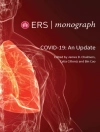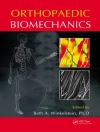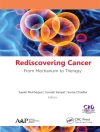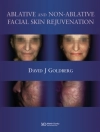This book provides a practically applicable guide to the management of liver metastases in cases of colorectal cancer. It features detailed reviews of the latest diagnostic and therapeutic options. Instruction on how to appropriately apply surgical techniques including two stage hepatectomy as well as both laprascopic and open resection in a variety of scenarios is covered. The use of systemic therapies involving oxaliplatin, immunotherapy and infusional therapy are also described along with a range of surveillance strategies.
Vauthey and Adam Colorectal Liver Metastasis comprehensively covers the latest advances in how to successfully diagnose and treat colorectal liver metastases and is an indispensable resource for all trainee and practicing medical professionals who encounter these patients within their clinical practice.
สารบัญ
1 History of treatment of colorectal liver metastases.- 2 Anatomy.- 3 Exposure.- 4 Anatomic versus non-anatomic resection.- 5 Simulation and navigation.- 6 Advanced techniques in multiple metastases: fiduciary markers and completion ablation.- 7 Two-stage hepatectomy for biloblar colorectal liver metastases: experience of MD Anderson Cancer Center.- 8 Two-stage hepatectomy for biloblar colorectal liver metastases: experience of Hôpital Paul-Brousse.- 9 One-stage hepatectomy for biloblar colorectal liver metastases: experience of the University of Tokyo.- 10 Associated Liver Partition and Portal vein ligation for Staged hepatectomy (ALLPS).- 11 Open resection technique.- 12 Laparoscopic resection technique: Norwegian experience.- 13 Laparoscopic resection technique: French experience.- 14 Laparoscopic resection technique: Japanese experience.- 15 Is there a place for robotic resection?.- 16 Advanced resection technique with vascular reconstruction.- 17 Resection margins.- 18 R1vascular resection.- 19 Prevention and treatment of perihepatic fluid collection including two-step air leak test.- 20 Synchronous presentation of primary and colorectal liver metastasis: classic, reverse, and combined.- 21 Approach to synchronous lung and liver metastases and single incision combined resection.- 22 Perioperative chemotherapy: review of randomized trials and recommended approach.- 23 The disappearing metastasis.- 24 Downsizing of unresectable colorectal liver metastasis.- 25 Is there a place for debulking?.- 26 Liver transplantation.- 27 Prognostic model for colorectal liver metastasis.- 28 Personalized prognostic model (contour model).- 29 Conditional recurrence-free survival.- 30 Repeat Hepatectomy: Rationale and Results.- 31 Initial systemic chemotherapy for metastatic CRC.- 32 Treatment refractory metastatic CRC.- 33 Targeted therapy beyond EGFR and VEGF.- 34 Adjuvant systemic chemotherapy.- 35 Immunotherapy.- 36 Infusional therapy: European experience.- 37 Infusional therapy: American experience.- 38 Optimal diagnostic imaging of CLM in surgical candidates.- 39 Prevention of postoperative liver insufficiency including standardized future liver remnant and kinetic growth rate.- 40 Portal vein embolization with and without hepatic vein occlusion.- 41 Radiofrequency ablation, electroporation and microwave ablation.- 42 Radiation therapy.- 43Radioembolization.- 44 Hepatic injury from chemotherapy.- 45 Imaging response criteria.- 46 Pathological response criteria.- 47 Histopathological patterns of progression and vessel co-option.- 48 Micrometastasis.- 49 Liquid biopsy.- 50 Multigene testing for prognostication and therapeutic actionability.- 51 Cancer-related signaling pathway and prognosis.- 52 Intra-operative ultrasound.- 53 Hybrid room for combined procedures.- 54 Liver tumor board.- 55 Role of advanced practice providers in enhancing perioperative and intraoperative patient care.- 56 Enhanced recovery after liver resection.- 57 Improved survival after CLM resection over 20 years.- 58 Liver Met Survey registry.- 59 Surveillance strategy and circulating DNA.
เกี่ยวกับผู้แต่ง
Dr. Jean-Nicolas Vauthey is Chief of the Hepato-Pancreato-Biliary Section in the Department of Surgical Oncology at The University of Texas MD Anderson Cancer Center and the Dallas Fort Worth Living Legend in Clinical Cancer Research Chair in Houston, USA. Dr. Vauthey co-authored more than 600 publications in peer-reviewed journals (h-index, 107) and more than 100 reviews and book chapters in major textbooks. Dr. Vauthey’s clinical research focuses on methods to measure and to improve outcome after hepatic resection for hepatobiliary malignancies. Dr. Vauthey proposed a standardized method for calculating the volume of the anticipated liver remnant prior to liver surgery. Dr. Vauthey has evaluated the use of preoperative chemotherapy in the multidisciplinary treatment of patients with hepatic colorectal metastases. He has pioneered the use of 2-stage hepatectomy for patients with advanced metastatic colorectal carcinoma to liver. Dr. Vauthey’s most recent work has focused on somatic mutations, circulating tumor DNA and their role in defining response, treatment, surveillance and prognosis after resection of colorectal liver metastases.
Dr. Yoshikuni Kawaguchi is Deputy Chief (Inpatient Care) of Hepato-Biliary-Pancreatic Surgery Division in the Department of Surgery at The University of Tokyo. Dr. Kawaguchi co-authored more than 130 publications in peer-reviewed journals (h-index, 25). Dr. Kawaguchi’s interest in clinical research is to improve short- and long-term outcomes of patients undergoing surgery for hepato-biliary-pancreatic diseases. Dr. Kawaguchi proposed a novel 3-level classification system for open and minimally-invasive liver resection, which is associated with liver resection complexity and postoperative complications. Dr. Kawaguchi has recently worked with Dr. Vauthey to improve the understanding of multiple somatic mutations of colorectal liver metastases for clinical practices including accurate prognostication after resection and recurrence risk-adjusted surveillance algorithm.
Professor René Adam is president of the Medical Board of the Paul Brousse Hospital, Villejuif, France and head of the Oncological Surgery Unit of the Hepato Biliary Center. Since 1994, he has held the position of professor of surgery at the Faculty of Medicine Kremlin Bicêtre at Paris South University, Paris. Professor Adam’s main fields of activity and research are surgery of the liver, biliary tract and pancreas, and hepatic transplantation. He is particularly involved in the treatment of hepatocellular carcinoma and of liver metastases.












